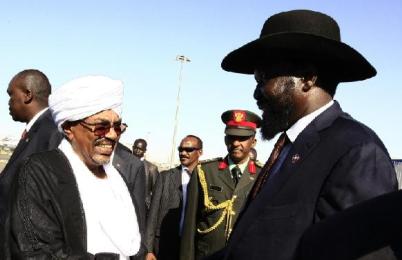Khartoum claims it has “documented evidence” Juba is supporting rebels
December 14, 2014 (KHARTOUM) – Sudan’s foreign ministry has renewed accusations that Juba is continuing to provide material and logistical support to rebel groups, saying it has documented evidence to prove the claims.

The foreign ministry spokesperson on Sunday demanded that Juba swiftly implements practical steps to stop harbouring and supporting the SRF rebels, stressing that the interest of the two countries must be established on clear bases for the preservation of their stability.
Youssef al-Kordofan, regretted that the South Sudan still continues to provide support to the Sudanese rebels, adding it is “incompatible with the spirit required (to develop good) relations between the two countries”.
Al-Kordofani further told the semi-official SMC that “the government has documented information about these violations”, calling on Juba to “commit itself to promises made to stop supporting these groups”.
Khartoum and Juba regularly trade accusations of support to rebel groups from both sides.
To settle this issue, the two countries committed themselves in the Cooperation Agreement of 27 September 2012 to stop supporting or harbouring rebel groups, and agreed to establish a buffer zone on the border and to form a joint monitoring team to prevent rebel infiltration.
However, the agreement was not implemented as Juba fears that the establishment of a Safe Demilitarized Border Zone (SDBZ) may irritate the Dinka Malual who believe that the deal leads to concede the disputed 14-Mile Area to Sudan. For Khartoum the matter is important because of the strategic importance of the area which links East Darfur and Northern Bahr el-Ghazal and used by Darfur rebels to cross into Sudan.
The Sudanese diplomat reaffirmed Khartoum’s keenness to have good relations with Juba, pointing to the cooperation agreements signed by both sides.
He further stressed on the need to implement the security agreement, saying it “will help to achieve peace, stability and confidence-building between the two country.
Al-Kordofani also underlined the keenness of his government to the stability of South Sudan. He said Khartoum contributes through different initiatives within the framework of the IGAD to achieve a political settlement for the ongoing conflict between South Sudanese parties.
Juba accuses Khartoum of supporting the rebel SPLM-In-Opposition, saying they receive weapons and ammunition from the Sudanese army.
Following an attack by a joint Sudanese rebel force in North and South Kordofan states in April 2013, Khartoum disclosed that it had furnished senior officials in South Sudan including president Salva Kiir with detailed information on their support to the SRF rebels.
Khartoum at the beginning of the South Sudanese crisis thought that the inter South Sudanese conflict may push Juba to reconsider it support to the Sudanese rebels, but very quickly accused Juba of using the Justice and Equality Movement (JEM), one of the SRF factions, in the conflict.
In a report released this December, the Geneva based Small Arms Survey group said the alliances between the two governments and rebel groups “indicate the extent to which the current rebellions in Sudan and South Sudan are part of a complicated set of dynamics in the border zone that only contingently occupy the framework of state politics”.
Last month, Western Bahr el-Ghazal authorities accused the Sudan Armed Forces of bombing Raja county. While there was no official reaction from Sudanese officials on these claims, military sources in Khartoum said the county hosts a large military contingent of JEM fighters who left South Kordofan.
(ST)
